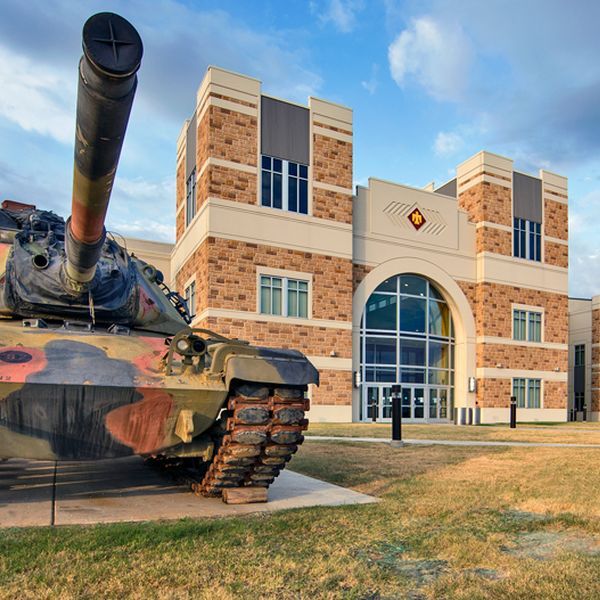Broken Arrow National Guns has become a prominent topic in discussions surrounding firearms, gun rights, and national security. Whether you're an enthusiast or someone concerned about gun policies, this guide will provide valuable insights into the subject. This article will explore the history, significance, and legal aspects of Broken Arrow National Guns, while also addressing its impact on society. If you're curious about firearms and their role in national discussions, you're in the right place.
As debates around gun control continue to intensify, understanding terms like "Broken Arrow" is essential for anyone interested in firearms. The term itself refers to incidents involving accidental mishandling or loss of control over nuclear weapons, but it has also evolved to encompass broader discussions about gun safety and regulations. This article will delve into these nuances and provide clarity on the topic.
Whether you're a firearm enthusiast, a policy maker, or simply someone curious about the implications of gun-related incidents, this article aims to provide a well-rounded perspective. By exploring the origins, applications, and implications of Broken Arrow National Guns, we hope to equip you with the knowledge needed to make informed decisions about this critical issue.
Read also:Is Brian Taylor Cohen Married
Table of Contents
- History of Broken Arrow National Guns
- Understanding the Terminology
- Legal Aspects of Broken Arrow National Guns
- Impact on National Security
- Safety Measures and Protocols
- Public Perception and Awareness
- Key Statistics and Data
- Famous Broken Arrow Incidents
- Future Trends in Firearms and Security
- Conclusion
History of Broken Arrow National Guns
The term "Broken Arrow" dates back to the Cold War era, where it was used to describe incidents involving the accidental mishandling of nuclear weapons. Over time, the term has expanded to include discussions about firearms and their role in national security. Understanding the historical context of Broken Arrow National Guns is crucial for grasping its current significance.
Origins of the Term
The origins of the term "Broken Arrow" can be traced back to military protocols established during the 1950s. During this period, the United States and the Soviet Union were engaged in an arms race, leading to the development of advanced nuclear weapons. To ensure safety and prevent accidental detonations, specific codes and procedures were created. One such code, "Broken Arrow," was used to report incidents involving the loss or compromise of nuclear weapons.
Expansion of the Term
In recent years, the term "Broken Arrow" has been applied more broadly to include discussions about firearms and gun control. This expansion reflects growing concerns about gun safety and the need for stricter regulations. As debates around gun rights continue, the term serves as a reminder of the potential dangers associated with mishandling firearms.
Understanding the Terminology
To fully comprehend the implications of Broken Arrow National Guns, it's important to understand the terminology associated with the subject. This section will break down key terms and provide clarity on their meanings.
Key Definitions
- Broken Arrow: An incident involving the accidental mishandling or loss of control over nuclear weapons.
- National Guns: Refers to firearms used by military and law enforcement agencies, as well as those owned by civilians.
- Gun Control: Policies and regulations aimed at regulating the manufacture, sale, and use of firearms.
Legal Aspects of Broken Arrow National Guns
The legal framework surrounding Broken Arrow National Guns is complex and varies across different jurisdictions. This section will explore the key laws and regulations governing firearms and their implications for national security.
Federal Laws
At the federal level, laws such as the Gun Control Act of 1968 and the National Firearms Act of 1934 regulate the sale and possession of firearms. These laws aim to ensure public safety while respecting Second Amendment rights. Understanding these regulations is essential for anyone involved in the firearms industry.
Read also:Mila Ruby Onlyfans
State-Level Regulations
State-level regulations add another layer of complexity to the legal landscape. Some states have implemented stricter gun control measures, while others have taken a more lenient approach. This disparity highlights the need for a unified national policy on firearms.
Impact on National Security
The impact of Broken Arrow National Guns on national security cannot be overstated. Incidents involving the mishandling of firearms pose significant risks to both military personnel and civilians. This section will examine the potential consequences of such incidents and the measures being taken to mitigate them.
Risks Associated with Broken Arrow Incidents
- Loss of Life: Accidental discharges or mishandling of firearms can result in fatalities.
- Damage to Property: Firearms incidents can cause extensive damage to infrastructure and property.
- Psychological Impact: Such incidents can have long-lasting effects on individuals and communities.
Safety Measures and Protocols
To prevent Broken Arrow incidents, various safety measures and protocols have been implemented. This section will outline the key measures being taken to ensure the safe handling of firearms.
Training and Education
Training programs for military personnel and law enforcement officers emphasize the importance of gun safety. These programs cover topics such as proper handling, storage, and maintenance of firearms. Additionally, educational initiatives aimed at civilians promote responsible gun ownership.
Technological Advancements
Advancements in technology have led to the development of safer firearms. Features such as smart guns and biometric locks are being explored to reduce the risk of accidental discharges. These innovations hold promise for enhancing firearm safety in the future.
Public Perception and Awareness
Public perception of Broken Arrow National Guns is shaped by media coverage and personal experiences. This section will explore how public awareness of the issue is evolving and the role of media in shaping opinions.
Media Coverage
Media outlets play a crucial role in informing the public about Broken Arrow incidents and their implications. However, the accuracy and bias of media coverage can influence public opinion. It's important for individuals to seek out credible sources of information to form well-rounded perspectives.
Community Engagement
Community engagement initiatives aim to foster dialogue between stakeholders and promote understanding of firearms-related issues. These efforts help bridge the gap between different perspectives and encourage collaborative solutions.
Key Statistics and Data
Data and statistics provide valuable insights into the prevalence and impact of Broken Arrow incidents. This section will present key figures and highlight trends in firearms-related incidents.
Incident Rates
According to data from the National Shooting Sports Foundation, firearm accidents have been on a downward trend over the past few decades. However, the potential for serious incidents remains a concern, underscoring the need for continued vigilance.
Economic Impact
The economic impact of Broken Arrow incidents is significant, with costs associated with medical treatment, property damage, and legal proceedings. Addressing these issues requires a comprehensive approach that balances safety with economic considerations.
Famous Broken Arrow Incidents
Throughout history, there have been several notable Broken Arrow incidents that have captured public attention. This section will highlight some of the most famous cases and their implications.
Palomares Incident
In 1966, a B-52 bomber collided with a KC-135 tanker over Spain, resulting in the release of four hydrogen bombs. While three of the bombs were recovered, one remains lost, highlighting the risks associated with nuclear weapons.
Thule Incident
In 1968, a B-52 bomber carrying nuclear weapons crashed near Thule Air Base in Greenland. The incident resulted in the contamination of the surrounding area and sparked international concern about nuclear safety.
Future Trends in Firearms and Security
As technology continues to evolve, the future of firearms and security will be shaped by emerging trends and innovations. This section will explore potential developments in the field and their implications for Broken Arrow National Guns.
Smart Guns
Smart guns equipped with biometric sensors and GPS tracking are being developed to enhance firearm safety. These innovations have the potential to revolutionize the way firearms are used and managed.
Regulatory Changes
As public awareness of firearms-related issues grows, there may be increased pressure for regulatory changes. Policymakers will need to balance the need for safety with the rights of gun owners, ensuring that any new regulations are both effective and fair.
Conclusion
In conclusion, Broken Arrow National Guns is a complex and multifaceted issue that requires careful consideration. By understanding its historical context, legal implications, and potential risks, we can work towards a safer and more informed society. We encourage readers to engage in discussions about firearms and share this article with others to promote awareness and understanding.
Feel free to leave your thoughts in the comments section below or explore other articles on our website for more insights into firearms and national security. Together, we can contribute to a safer future for all.


